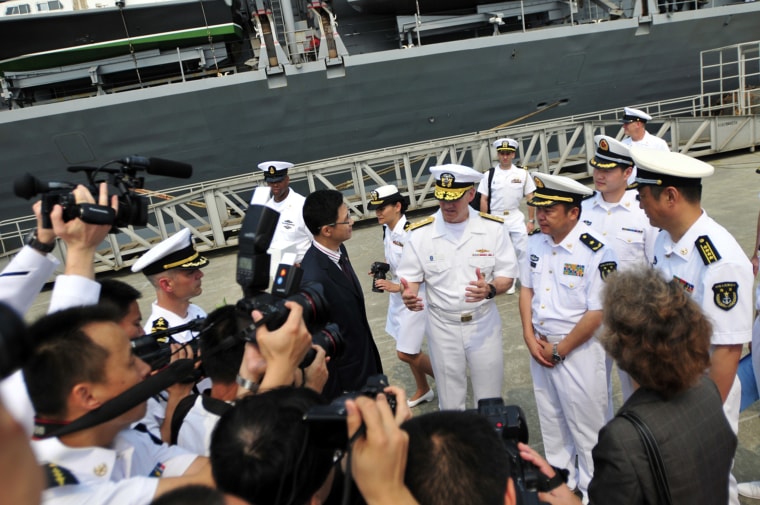BEIJING — The United States and China might be rival world powers, but that doesn’t mean they can't sometimes have a little fun together.
On Tuesday, American and Chinese navies met in the Port of Zhanjiang, the home base of China’s South Sea fleet, to exchange ideas and play a few sports matches. The Americans trounced the Chinese in basketball while the Chinese beat the U.S. in a soccer friendly, according to Agence France Press news service.
“The talks went tremendously well. Our Chinese counterparts were open, honest and candid,” said Capt. Ronald Oswald, theater security cooperation officer for the 7th Fleet, according to a U.S. statement.
The meetings marked the first face-to-face encounter between the commanders of the U.S.'s 7th Fleet commander and the Chinese South Sea Fleet to discuss operations in a "shared domain." About 1,000 American sailors were participating in the five-day visit which started on Monday, according to a report in the Chinese Army Daily.
The meet and greet came amid rising U.S.-China tensions. While the U.S. port call was taking place, the U.S. was conducting a large joint military exercises with the Philippines.
China claims much of the South China Sea, with overlapping claims from the Philippines, Vietnam, Malaysia, Brunei and Taiwan. The U.S. makes no bones about which country it thinks is at fault in the case.
“China is responsible for the rise of tensions and provocations in the South China Sea,” U.S. Adm. Harry Harris was quoted as saying by AFP.
The port call was not extensively reported by the Chinese media. Meanwhile, the U.S Embassy in Beijing posted a brief piece on the news on its account on Weibo, the Chinese Twitter-like service.
“On the one hand military to military exchanges, on the other hand massive military exercise on China’s doorstep, while at the same time conducting surveillance on China, what logic is this? What are they up to?” commented one Chinese named “Spirited Observer” on the embassy’s Weibo site.
IN-DEPTH
- New Photos Show China's Island-Building in Disputed Sea
- China Keeps Close Watch as Vietnam Builds U.S. Ties
- China to Boost Military Budget by 10 Percent
NBC News' Julia Zhou and Reuters contributed to this report.
